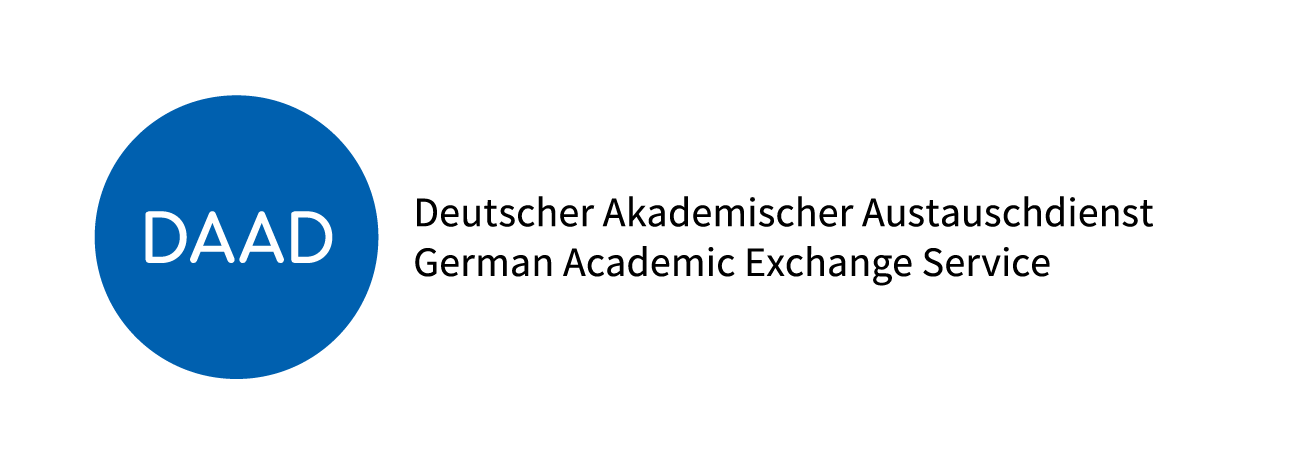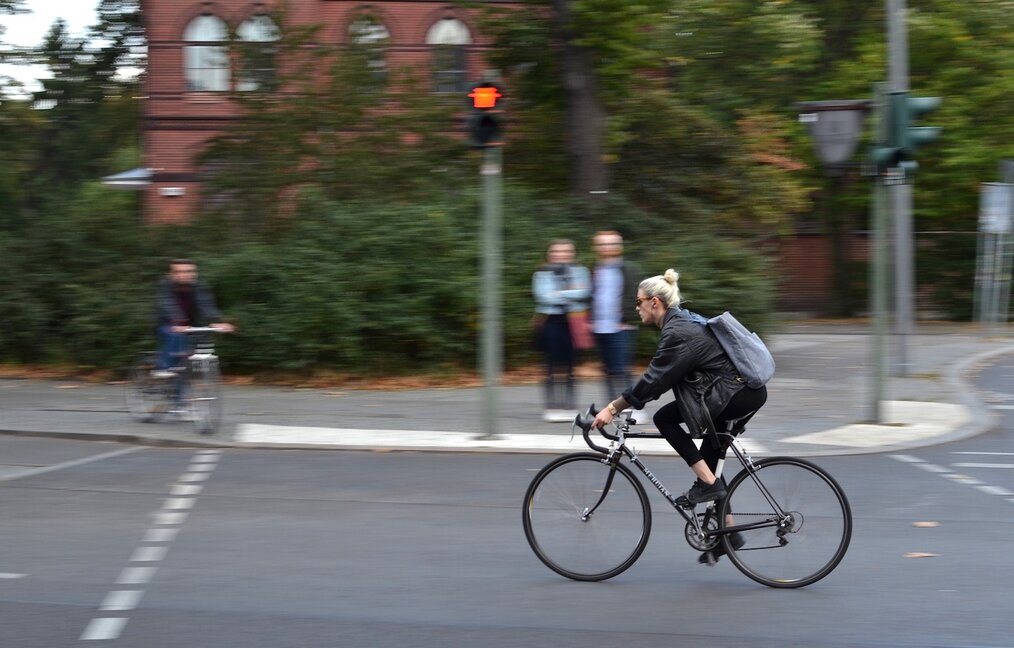How to Study Abroad in Germany on a Budget
Your complete guide to setting a budget and tracking expenses while studying abroad in Germany.

The thought of studying abroad in Germany might conjure up dreams of nightly strolls along the Rhine, eating soft pretzels with sharp mustard, and exploring castles at sunset amongst the darkening German forest with new friends. There is always that one lingering impediment to going overseas. The thought of how much you’ll have to open your wallet to broaden your horizons. In all study abroad programs, figuring out your financials and getting a smart budget into place beforehand is essential.
If Germany is the destination you've targeted for your study abroad experience, we have great news for you -- it is one of the more affordable western European countries to study abroad in. Additionally, there are many scholarship opportunities for students looking to spend a semester or year at a German university.
Want to Study Abroad on a Budget? Start a Budget!
As study abroad is commonly the first solo travel experience for many young adults, many students don’t create a budget or way of tracking expenses while in-country. Living abroad can get expensive quickly, so being prepared for the costs you'll likely accrue is extremely important.
Here's how to get started:
- Start a spreadsheet (Excel, Google Sheets, or Apple Numbers should all work).
- Before you go on your trip, make a list of all your anticipated costs.
- Don’t forget to build some room in there for ‘play money.’ You know you’re going to spend it, so you might as well build it in. Beer budget? You bet. Write it all down.
- Once you’re in Germany, keep all your receipts. If you don’t get a receipt from a transaction, write it down in your phone until you can get home and enter it in your spreadsheet.
Budgeting and tracking expenses might seem a bit tedious for your globetrotting, go with the flow experience, but it will help you discover your spending habits, which can save time and money as you realize what you want to prioritize (ex: train travel to visit other German cities) and what you can cut out (ex: regular late-night fast food binges with friends). Additionally, the habits you develop while traveling can be implemented when you return home and will add to your growth from the experience.
Ask Locals Where to Find Deals

While you travel, you'll quickly learn that locals are your best resource -- so don't be afraid to ask questions. They will know where to buy groceries, the best restaurants to try, and where the deals are!
Ask your German student friends to hook you up with the local discounts for everything from food to clothing to SIM cards. Are you shopping at an artisanal international foods store so you can get peanut butter (surprisingly hard to find in Germany) at a considerable markup, when you could be shopping at discount supermarket chains like Aldi, Kaufland, or Netto? Students always know where the best deals are.
Explore German Grocery Stores & Markets -- Then Learn to Cook
When you’re studying abroad, you’re not ‘on vacation.’ It can feel like that, especially if you’ve never lived away from home before, but remember you’re essentially living like a local, so be prepared to shop, pay bills, and not splurge on expensive items or experiences, like you might when you’re on vacation. At least, not all the time (that’s what the ‘play money’ fund is for!).
One of the biggest holes that money disappears into while traveling is food. If you want to stretch your budget, you should learn how to cook for yourself. German grocery stores are lovely. Find a nearby ‘Supermarkt’ where you could get just about anything, and don't look past the many bakeries with fresh bread you could stop into. Culturally, there is a different style of shopping than the once-a-week Costco haul you may be familiar with.
If you’re staying with a host family or have German friends, a great (and affordable) bonding experience can be asking them to teach you how to cook their favorite German dish. Even better, ask all your best friends over for an awesome potluck. You’ll discover lots of great foods, see what they like, and as with all good potlucks -- there are always leftovers.
If cooking isn’t your style, then maybe you should consider a homestay.
Do a Homestay with a German Family
If possible, a homestay can be a fantastic experience that quickly immerses you into a family abroad. While every homestay is different, it's common for a host family to cook one or two meals a day. Not only is this a huge benefit, but they often have other little things (ex: bandages, nail clippers, extra towels, etc.) that you might need in the course of your travels, but would be expensive to have to buy all outright if you were living by yourself.
Staying with a family is also beneficial as a way to learn and practice your German while studying abroad. You'll be shocked at how quickly you pick up common phrases when living in a German-speaking household.
Find an Affordable Study Abroad Program

There are study abroad programs for every budget, from the more bare-bones direct exchanges to scholarship programs to the white-glove all-inclusive offerings. Read reviews and compare what each program offers to find the one that best fits your budget and needs.
Look at Your School's Parter Programs
Does your schools have any existing relationships with German institutions? If so, not only will they usually be relatively affordable but previous attendees of the programs can likely give you the scoop on how to save money and what their experience was like.
Search for Available Scholarships
A scholarship to study abroad can be a life-changing opportunity, and with a bit of dedication and hard work, there are options out there! The Go Overseas guide to studying in Germany lists some scholarships to study abroad in Germany.
Some grants and scholarships require a longer application process. They can be time-consuming to apply for but think of the potential payoff. Make sure to double-check with your school, any local groups that you’re involved in, and your local government to see if you could qualify based on your demographic, area of study, or anything, really. Scour the internet and apply to as many study abroad scholarships as you can find!

Funding Opportunities to Study in Germany Through DAAD
The German Academic Exchange Service, known by its acronym DAAD in German, is an organization that offers various scholarships and research grants to study in Germany for all academic levels and fields. If you've ever considered studying in Germany, check out the informational page DAAD and Go Overseas have created together to provide comprehensive overview on studying in Germany.
Figure Out Fun, Free Activities in Germany

While Europe might be famous for its affordable country-to-country flights relative to North America, it’s still a good idea to plan to stay close to your home base the majority of the time to save money. While it might seem so close, “I could go to Amsterdam one night, Paris the next, then London!” the truth is it will drain your bank account faster than you can say, “Help me, Mom!”
Maybe promise yourself that if you manage to have a certain amount of money still saved up by the time your study abroad period is at its end, then you will make a trip out of it. If on a budget, it's ill-advised to do this at the beginning of your time overseas, when you’ll have less of an idea of how much money you’ll need. Surprise expenses always pop up! Have an emergency fund set aside, too, in case you do need to travel for something urgent.
Trust me, Germany is exciting and diverse enough -- from the nightclubs of Saint Pauli to the mountain cloisters of Bavaria. That you could travel within the country for years and still find things to do.
Joining an interest group is usually affordable and can lead to some fantastic and affordable travel opportunities in-country. It’s also good to research beforehand where you’re going and see if any of the attractions offer free or discounted ticket days. University clubs will also commonly host affordable trips and are a great way to meet new people with similar interests.
Another cost-saving tip is to stay at youth hostels while traveling throughout Germany. Germany has excellent and affordable youth hostels called ‘Jugendherberge.’
Find Friends Living on a Similar Budget

Photo credit: Naomi M., Berlin Consortium for German Studies Alum
Surrounding yourself with friends that align with your interests and budget is also a great way to keep your spending under control. There’s no denying it -- we all have different capacities and stories when it comes to money. If you’re hanging out with someone who has the cash to burn, credit cards for days, and is always wanting to eat at trendy restaurants or go shopping for fun, while you’d prefer hanging out around a budget-friendly home-cooked meal and a stroll in the park -- things can get awkward. That's not to say you can't be involved in those activities in moderation, but you may have to balance how often you can partake -- and there's no shame in that!
It’s better to be upfront about what you can and can't afford. You’re responsible for yourself, no one else. Don’t feel pressured to spend money you don’t have to. Always ask to see a restaurant's menu and prices before you sit down if you’re eating out. Sticking to your budget is nothing to be ashamed about, so get comfortable discussing money upfront, lest you end up having to pay for a painful night out that you then have to recoup by eating noodles for a week.
Figure Out Your Banking Before You Arrive
If you’re planning to go abroad to Germany, set up a meeting with your bank to discuss your best options for using money while abroad. Will there be fees for international charges? If so, how much? Is it more affordable to take out cash using a debit card or pay for things on credit and then pay your card off each month? How much cash should you have on you before traveling?
Pro Tip: It is generally cheaper to exchange money in your home country before leaving.
Especially if you’re staying for a long time, all those $5 or $10 charges add up quickly. Also, the exchange rate you might be charged when withdrawing cash can be different than what you get when using a credit card. Generally speaking, travel rewards credit cards have the best exchange rate, with the foreign transaction fees being nil.
Talk to your bank to figure all this out ahead of time, then built any fees into your budget. For example, you could give yourself an ‘allowance’ and withdraw cash every two weeks via an ATM. Having this two-week ‘cycle’ will help you budget -- similar to having a paycheck. Dealing in all cash has its pros and cons, though, as you'll likely be more conscious of your spending, but it is also riskier. Find what works best for you and stick to it!
Get a Bike -- It’s Affordable & Cool

Germans (and Europeans generally) use bikes to commute to school and work at a much higher rate than those of us in North America. Many German cities are physically small, without as much sprawl as American suburbs.
You can always ask other students if they know of a bike stash or if there’s a good place around town to buy second-hand bikes. Local Facebook groups are an excellent place to search, as well. Also, don't forget to invest in a good bile lock!
The German public transportation system is excellent, punctual, and relatively affordable, but bikes are free to use. So if you’re on a budget -- use a bike!
Save on International Phone Charges
Once you experience European cell phone data plans, you’ll never want to go back to North American ones. German cell phone plans are relatively affordable, and with the prevalence of WiFi everywhere and apps like Skype, Zoom, and FaceTime, it just makes sense to use a local phone or SIM card for all your phone needs.
If you’re bringing your cell phone from North America with the intention of putting a German SIM card in it, then ensure the phone is unlocked and able to use a SIM card from different countries and providers. Most phones ship factory unlocked these days, including all new iPhones, but it's best to get that sorted ahead of time.
Additional Reading: Explore the cost of studying abroad and living in Germany in more detail -- from food to apartments, and more!
Live by the Budget!
Making a budget, following it, and looking for ways to save money are vital to having a budget-friendly Germany study abroad experience. Make sure not to be too hard on yourself. Try and save as much money and acquire as many scholarships and grants as you can before you go. As with any international trip, always have an emergency fund.
Remember -- the best part of your time in Germany won’t be the things you buy, but the people you’re with, the memories you’ll make, and the stories you’ll bring home.



